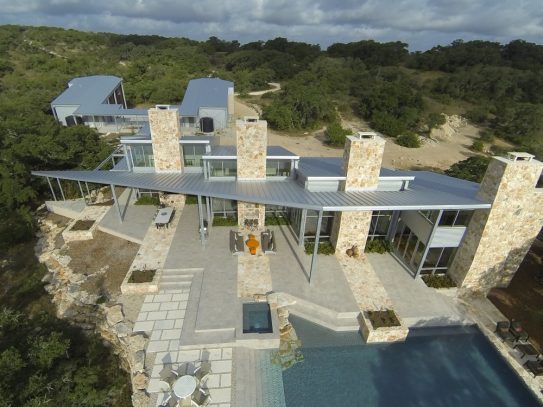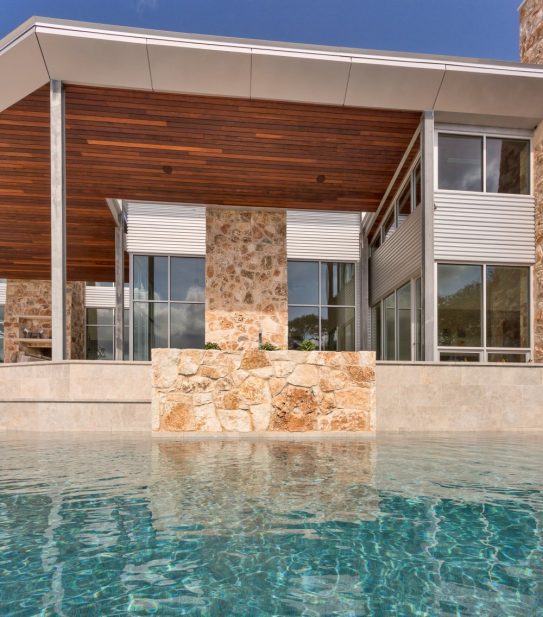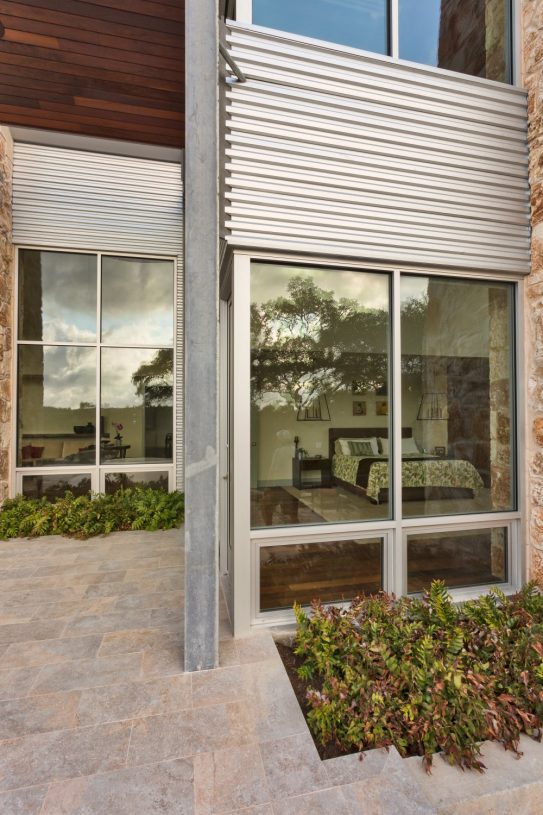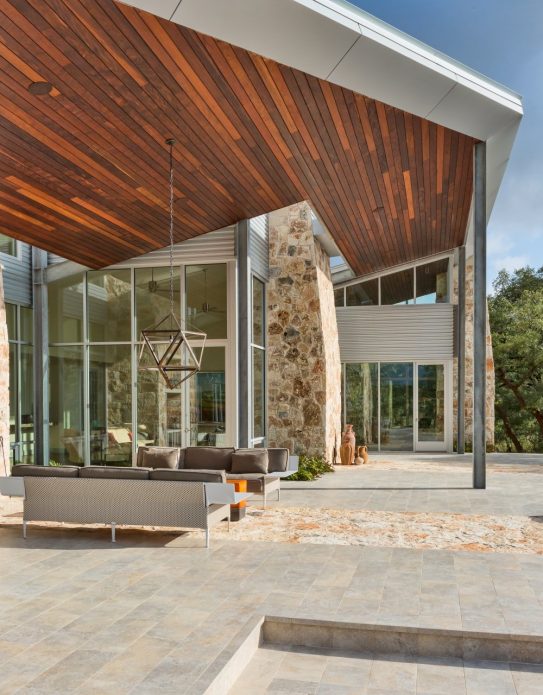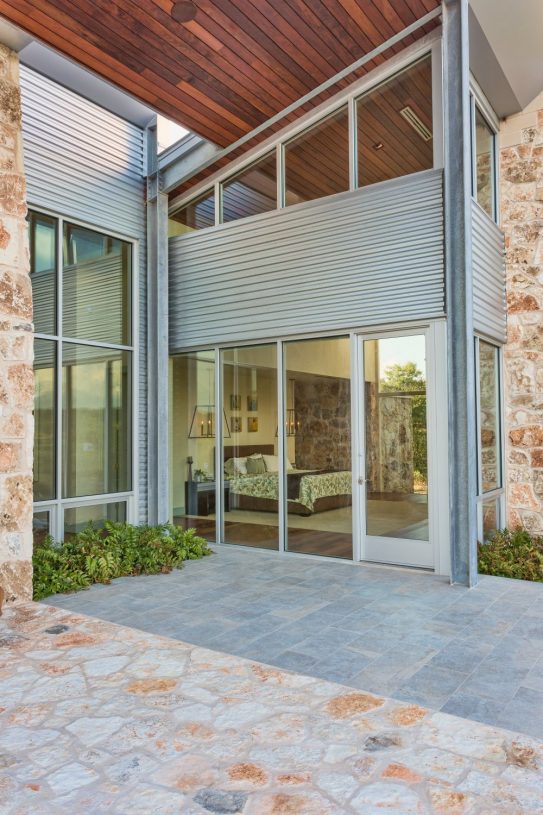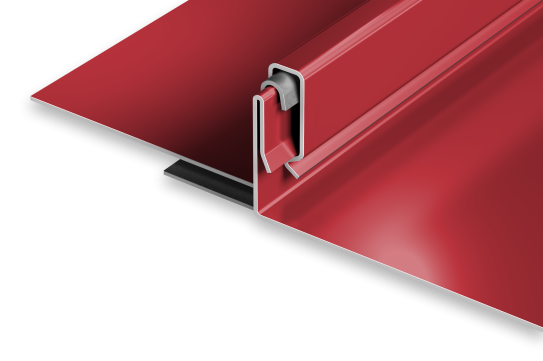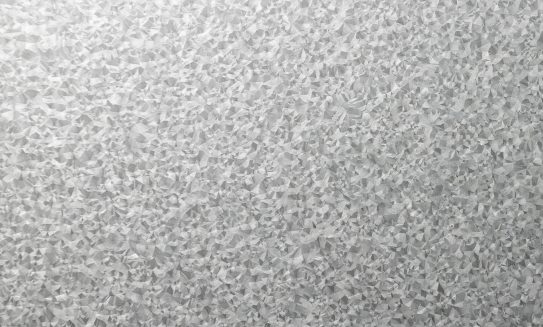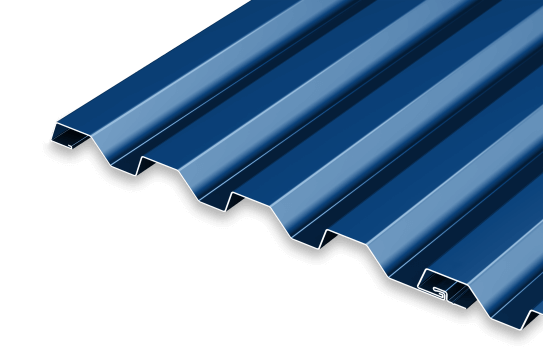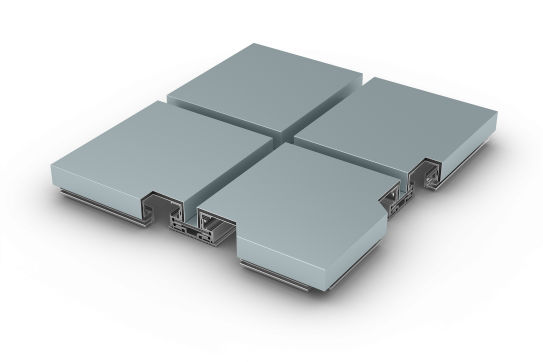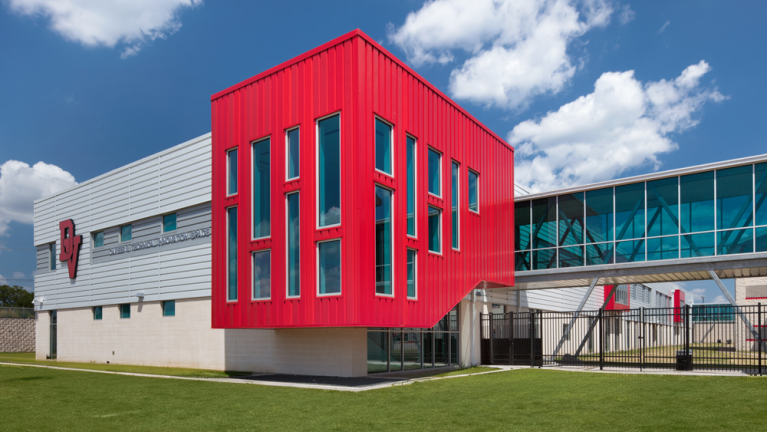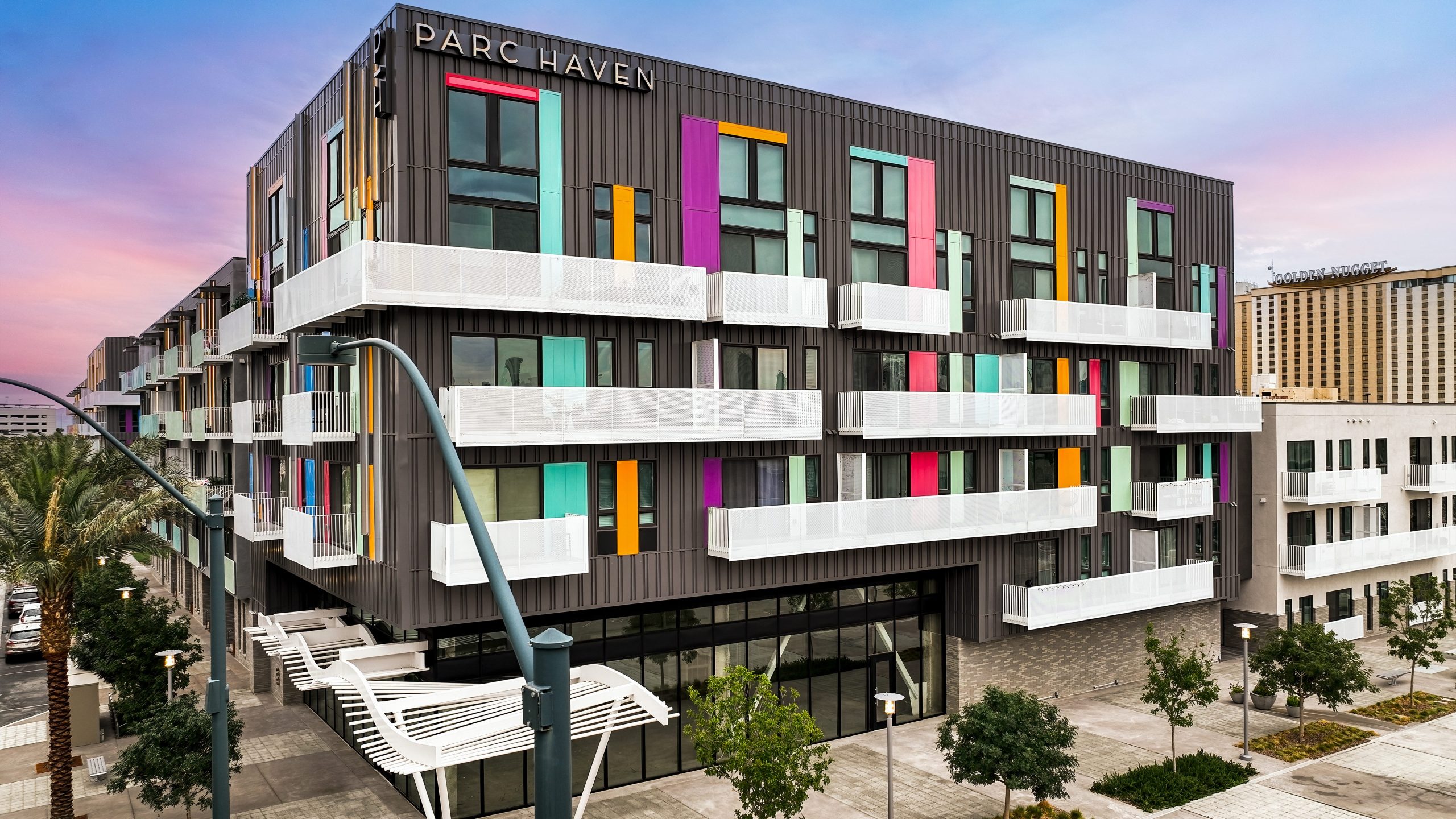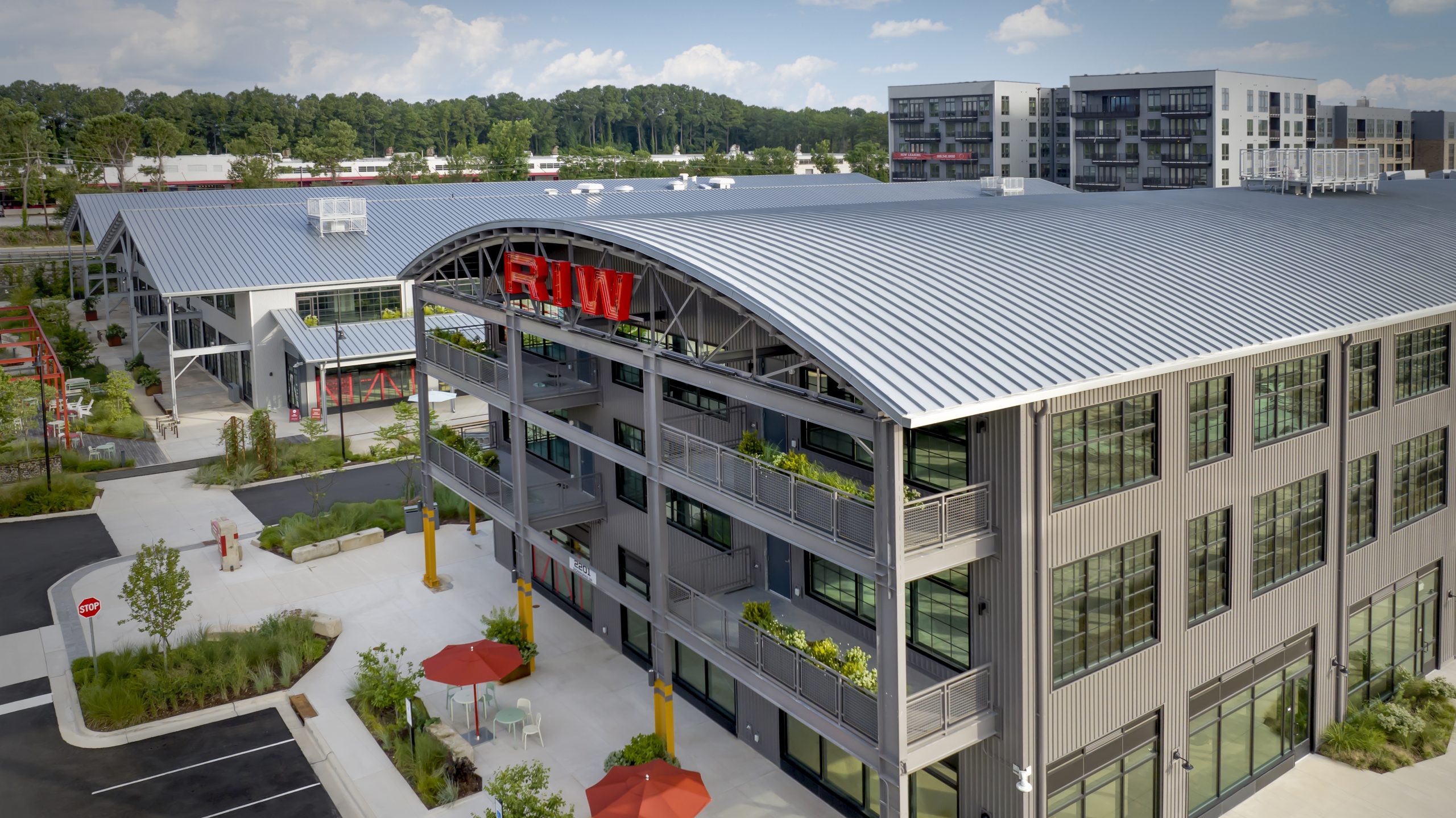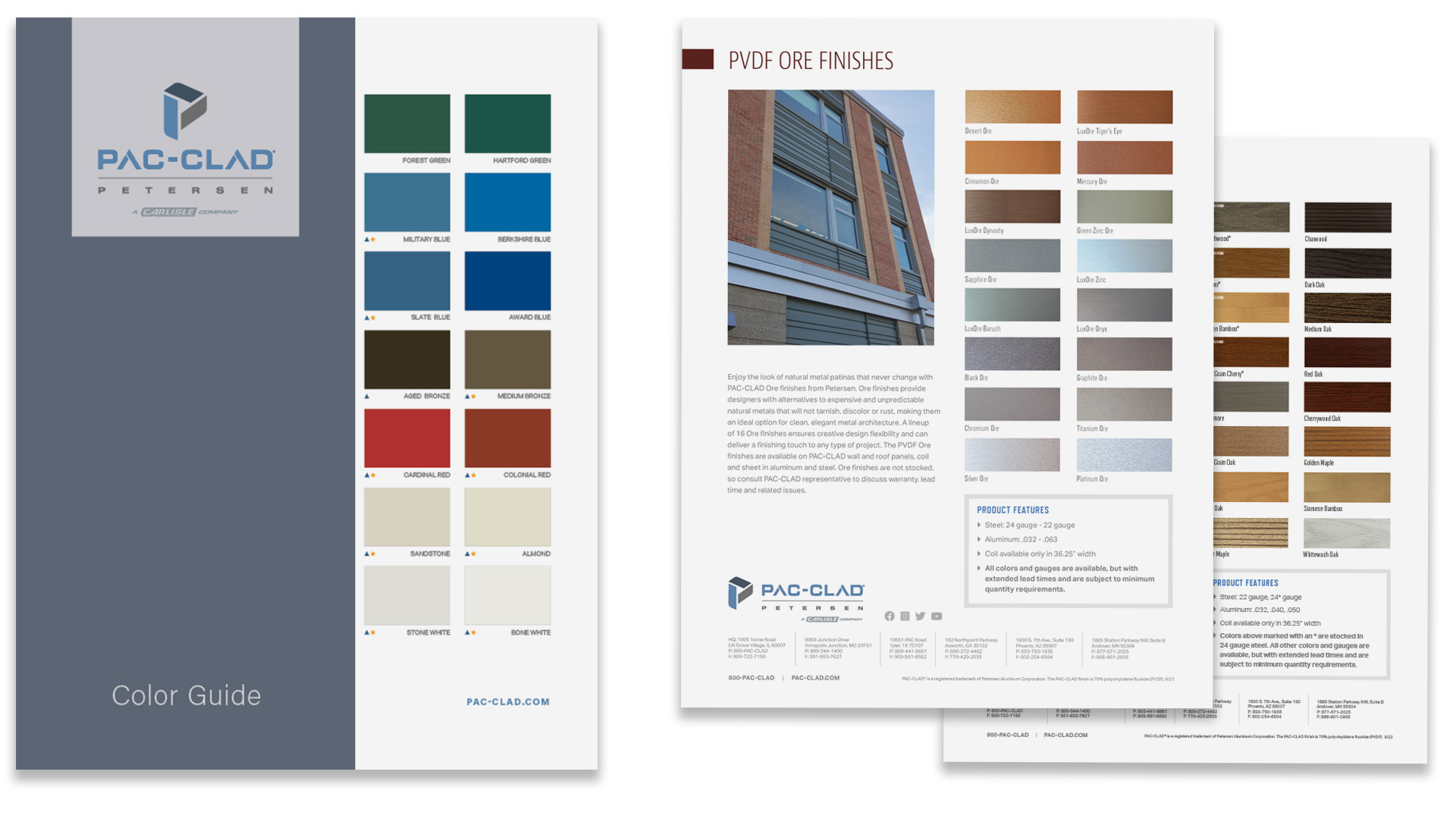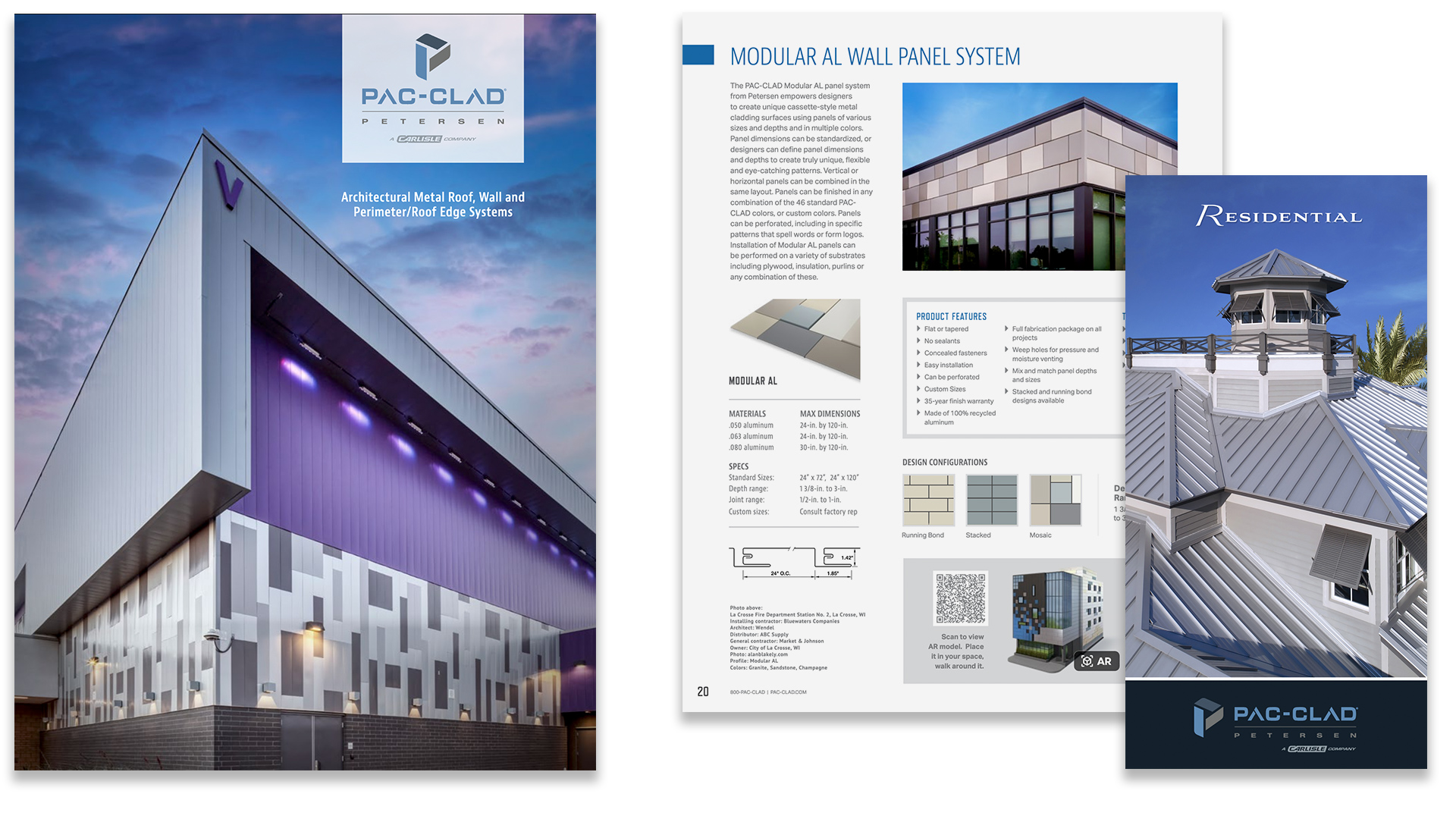Multiple materials create industrial ranch look for architect’s Texas home
As many architects can attest, designing a residence for oneself can present challenges. But architect Jack Carson rose to the occasion by creating a striking design for his new home located on a ranch in the beautiful Texas Hill Country. Design for the 7,000 sq. ft. residence follows LEED principles and blends a unique palette of “industrial” materials with ultra-modern aesthetics.
“The house is truly on a ranch. We have cattle on the property,” said Carson, president of Carson Design Associates in Austin, Texas. “We wanted to keep the design somewhat in the ranch vernacular but with a contemporary look. The reliance on metal for the roof and cladding and an exposed structure helped create a ranch building feel. We like to think of it as an ‘industrial ranch’ aesthetic.”
Several of Petersen’s PAC-CLAD profiles contributed to Carson’s success in delivering the desired look. Nearly 13,000 sq. ft. of Petersen’s Galvalume Snap-Clad panels was used to clad the roof. The 16-in. roof panels were roll-formed on site due to extremely tight site conditions and because the only access to the site was via a dirt road that wasn’t wide enough to allow large trucks to deliver factory-formed panels. An additional 3,000 sq. ft. of Snap-Clad panels was also installed vertically as siding around two garages, and at specific locations on the house as accent panels.
The primary wall panel profile utilized was Petersen’s Precision Series panels, of which 2,400 sq. ft. of the 16-in. Galvalume material was installed. All wall panels were manufactured at Petersen’s Tyler, Texas plant.
The on-site fabrication of the roof panels, and the installation of all roof and wall panels was performed by Dean Contracting Co. in Kyle, Texas. “The greatest challenge was executing the architects dream for his home,” said Jesse Brown, vice president of Dean Contracting. “The design included a myriad of varying geometric shapes on many different planes and a blend of materials that required complex detailing. It was probably one of the top five most challenging jobs that we have ever done.”
The Petersen profiles highlight the material palette, which also includes Texas limestone sourced directly from the property on which the home sits, Ipe wood, steel beams and a generous amount of glass. “We have great views into the valley with no neighbors,” Carson said. “A large overhanging soffit covers a large portion of the deck and shades all of the glass.”
The underside of the overhanging soffit is clad with Ipe wood that ends with an edge that Carson and Brown describe as “the wing” or “the blade.” Fabricated with Alcoa Reynobond aluminum composite material (ACM), this transitional element smoothly links the standing seam roof with the overhanging wood-clad soffit. Petersen functioned as distributor of the Reynobond ACM.
The decision to use Petersen for the roof and siding was arrived at rather easily. As Carson noted, “I was familiar with PAC-CLAD and wanted to use it but also wanted to rely on the builder’s recommendations regarding materials and subcontractors. In our very first meeting with the roofer, Dean Contracting, they brought in samples of PAC-CLAD and recommended using it. That made the decision pretty easy.”
Carson is a big believer in metal as a roofing and cladding material. “We wanted to be as maintenance-free as possible. And sustainability was an important component as well,” Carson said. “We used LEED principles in our design. Metal is far greener than asphalt shingles and other alternatives. It’s just a great option for residential construction.”
The installation went smoothly, Carson said, primarily because he relied on the expertise of Dean Contracting. “My approach is to listen to the experts. Jesse Brown and his crew worked out the complex detailing. They use metal all the time and are extremely capable. We collaborated as necessary but I basically left it in their hands.”
Brown was quick to give full credit to the crew that was led by Juan Rojas, sheet metal superintendent. Rojas is a 24-year employee of Dean Contracting and Brown cites Rojas’ attention to function and precise detailing as a main reason why the job turned out so well.
The house—in spite of its size and location in the hot Texas climate and the large amount of glass—is energy efficient. Two inches of rigid insulation was installed under the metal roof and an additional four inches of sprayed insulation went under the roof deck. “The heavy insulation and the shade provided by the overhang makes it very energy efficient. The house stays a very constant temperature,” Carson said.
The entire property captures rainwater in 18,000-gallon collection tanks, which is yet another reason for using metal, Carson points out.
When asked about the challenge of designing for yourself, Carson thought it was easier than designing for a traditional client. “I was probably more demanding in ‘getting it right’, but once I knew I had the right design and materials, I didn’t have to convince myself that it was the best direction. There was no negotiation or comprising the design in any way,” Carson said. “The biggest problem any architect has in designing for themselves is in ‘editing out.’ We know all of the possibilities, and being able to prioritize and filter out the unnecessary options is often the hardest challenge.”


